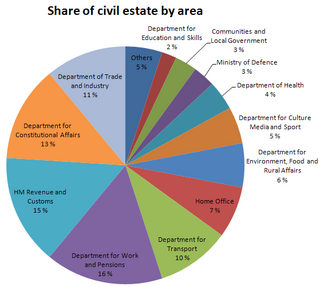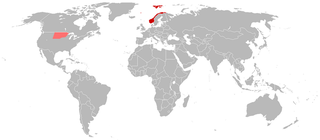E-government is the use of electronic communications devices, such as computers and the Internet to provide public services to citizens and other persons in a country or region. According to Jeong, 2007 the term consists of the digital interactions between a citizen and their government (C2G), between governments and other government agencies (G2G), between government and citizens (G2C), between government and employees (G2E), and between government and businesses/commerces (G2B). E-government delivery models can be broken down into the following categories: This interaction consists of citizens communicating with all levels of government, facilitating citizen involvement in governance using information and communication technology (ICT) and business process re-engineering (BPR). Brabham and Guth (2017) interviewed the third party designers of e-government tools in North America about the ideals of user interaction that they build into their technologies, which include progressive values, ubiquitous participation, geolocation, and education of the public.
E-services are services which use of information and communication technologies (ICTs). The three main components of e-services are- service provider, service receiver and the channels of service delivery. For example, as concerned to public e-service, public agencies are the service provider and citizens as well as businesses are the service receiver. The channel of service delivery is the third requirement of e-service. Internet is the main channel of e-service delivery while other classic channels are also considered.

The National Technical Information Service (NTIS) is an agency within the U.S. Department of Commerce. The primary mission of NTIS is to collect and organize scientific, technical, engineering, and business information generated by U.S. Government-sponsored research and development, for private industry, government, academia, and the public. The systems, equipment, financial structure, and specialized staff skills that NTIS maintains to undertake its primary mission allow it to provide assistance to other agencies requiring such specialized resources.

The General Services Administration (GSA), an independent agency of the United States government, was established in 1949 to help manage and support the basic functioning of federal agencies. GSA supplies products and communications for U.S. government offices, provides transportation and office space to federal employees, and develops government-wide cost-minimizing policies and other management tasks.

The Crown Commercial Service (CCS) is an executive agency and trading fund of the Cabinet Office of the UK Government. The CCS is responsible for improving government commercial and procurement activity.
E-procurement is the business-to-business or business-to-consumer or business-to-government purchase and sale of supplies, work, and services through the Internet as well as other information and networking systems, such as electronic data interchange and enterprise resource planning.
Universal Business Language (UBL) is an open library of standard electronic XML business documents for procurement and transportation such as purchase orders, invoices, transport logistics and waybills. UBL was developed by an OASIS Technical Committee with participation from a variety of industry data standards organizations. UBL is designed to plug directly into existing business, legal, auditing, and records management practices. It is designed to eliminate the re-keying of data in existing fax- and paper-based business correspondence and provide an entry point into electronic commerce for small and medium-sized businesses.

The Office of Government Commerce (OGC) was a UK Government Office established as part of the HM Treasury in 2000. It was moved into the Efficiency and Reform Group of the Cabinet Office in 2010, before being closed in 2011.
The Capability Acquisition and Sustainment Group (CASG) is an organisation within the Australian Department of Defence, responsible for acquisition and supply chain management of military equipment and materiel including aircraft, ships, vehicles, electronic systems, uniforms and rations for the Australian Defence Force. CASG employs more than 7000 military, civilian and contracted staff in more than 70 locations around Australia and internationally.

Government procurement or public procurement is the procurement of goods, services and construction on behalf of a public authority, such as a government agency. With 10 to 20% of GDP, government procurement accounts for a substantial part of the global economy.
Quadrem is a procurement support organization in the mining industry. It is an eMarketplace project launched in 2000 to support the purchasing process the mining industry. Quadrem is one of the few remaining eMarketplace projects still active, most likely because of its global approach and strong support by participating businesses. It plays an active role in the UNSPSC classification program and standardization of communication between suppliers and purchasers.
Statskonsult AS is a defunct Norwegian government-owned company that provided management consulting services related to government restructuring and reform. It was created in 1947 as the Rationalisation Office, later the Directorate of Rationalisation. The name Statskonsult was taken into use in 1987. It was converted to a limited company on January 1, 2004, owned by the Norwegian Ministry of Government Administration and Reform with the intention of competing with other consulting companies within three years, but the change of government after the 2005 elections changed the plans. It merged with Norge.no and the Norwegian eProcurement Secretariat on July 1, 2007, to form the Agency for Public Management and eGovernment.
Norge.no is a web guide for citizens to online public services in Norway. The web portal has information about how citizens can communicate digitally with public authorities, log into public services and choose a digital mailbox.
The Agency for Public Management and eGovernment or Difi is a government agency subordinate to the Norwegian Ministry of Government Administration and Reform.

The public estate in the United Kingdom is the collection of all government-owned real property assets in the United Kingdom. The Office for National Statistics estimated in 2008 that the public estate has a book value of £380 billion, which is about £6,000 for every UK resident. Of this, approximately £240 billion is held by local government, while the rest—£130 billion—is held by the central government and public corporations.
All European countries show eGovernment initiatives, mainly related to the improvement of governance at the national level. Significant eGovernment activities also take place at the European Commission level as well. There is an extensive list of eGovernment Fact Sheets maintained by the European Commission.
Basware Corporation is a Finnish software company selling enterprise software for financial processes, purchase to pay and financial management; main competitors in this arena include Tradeshift, Coupa, Ariba, Tungsten Network and iPayables. Basware’s products are packaged composite applications (PCA) that are intended to interact with and complement the functionalities of existing systems, such as enterprise resource planning (ERP) systems, used across the organization to support daily processes. The company’s software can also be implemented as a software as a service (SaaS) delivery. These technologies are known as Cloud-Invoicing and guarantee a barrier-free exchange of structured documents. Basware claims that Cloud Invoicing will reform the whole way of business-to-business interoperability.
A reverse auction is a type of auction in which the traditional roles of buyer and seller are reversed. In an ordinary auction, buyers compete to obtain goods or services by offering increasingly higher prices. In contrast, in a reverse auction, the sellers compete to obtain business from the buyer and prices will typically decrease as the sellers underbid each other.
GeBIZ is a Government-to-business (G2B) Public eProcurement business centre where suppliers can conduct electronic commerce with the Singapore Government. All of the public sector's invitations for quotations and tenders are posted on GeBIZ. Suppliers can search for government procurement opportunities, retrieve relevant procurement documentations and submit their bids online.
MinID is an electronic login system used to secure a range of internet services in the Norwegian public sector. The communication done with MinID is encrypted to secure information from unauthorized usage. Everyone registered in the Norwegian Population Register over the age of 13 years can create a public ID with MinID.








